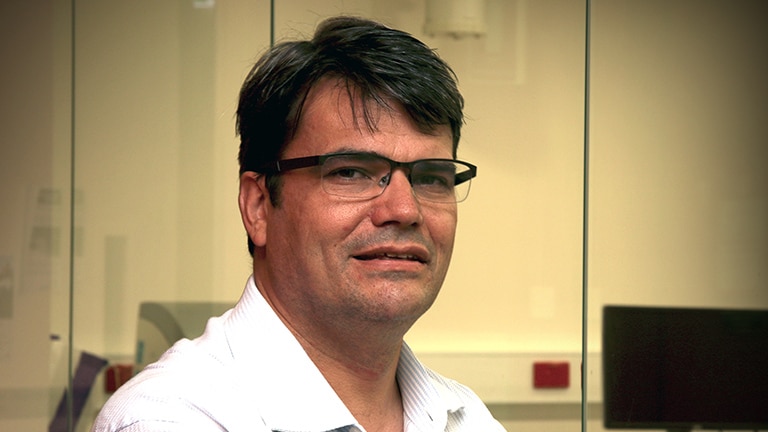
A global trial involving Hunter researcher Dr Mike Fay has solved a treatment dilemma for older patients with a glioblastoma brain tumour, extending survival.

To treat, or not to treat, was a dilemma that once troubled oncologists when determining the fate of older patients with a glioblastoma (GBM) brain tumour, however a global trial involving Hunter researchers has just provided a solution.
As reported in this month’s New England Journal of Medicine, the study investigated the safety and efficacy of short-course radiation and chemotherapy for people aged over 65, showing a significant improvement in survival rates.
It was first planned around eight years ago, at a time when clinicians felt that older patients with GBM would struggle to tolerate the conventional treatment regime. Glioblastoma is among the top five causes of death due to cancer, killing an estimated 1000 Australians each year.
“Some older patients would receive radiation but certainly not chemotherapy as well because that was considered to be too harsh,” Dr Mike Fay, one of the principal investigators, explained.
“While glioblastomas aren’t particularly common, the average age at diagnosis is 64 years so basically half of all patients would have a life expectancy of only a couple of months if we didn’t treat the cancer aggressively.”
An earlier study showed that Temozolomide chemotherapy combined with radiotherapy yielded a significant improvement in survival for younger patients, though few older patients were recruited for that trial. The Canadian Cancer Trials Group then initiated a phase III international trial involving 560 patients aged 65+, of whom 94 came from Australia and New Zealand.
Co-investigator Dr Claire Phillips said there had been a tendency to be “gentle” when treating older patients with GBM due to possible side-effects.
“This study shows us that the prognosis is poor but perhaps not as bad as is generally believed. Importantly, it provides good evidence that older patients who have GBM, but who are otherwise quite healthy, benefit from moderately aggressive therapy without causing terrible toxicity,” Dr Phillips said.
Temozolomide was chosen because it is efficiently absorbed into the brain. It’s given as a tablet, allowing daily administration at home.
“We found in the study there was no detriment to quality of life because the tumour was better controlled, offsetting a slight increase in nausea and vomitting. But we saw significant improvement in survival,” Dr Fay adds.
“Medium overall survival for the combination arm of the study was 9.3 months, while in the radiotherapy alone group it was 7.6 months. Also, the time between treatment and tumour progression was 5.3 months versus 3.9.
“Patients who had silencing of a DNA repair enzyme called MGMT also had a better response. Clearly that’s a useful prognostic factor for this sort of chemotherapy and we would hope that this now becomes standard-of-care treatment for older patients.”
The trial was supported by the Hunter Cancer Research Alliance, Trans-Tasman Radiation Oncology Group and Calvary Mater Newcastle.
* Radiation oncologist Dr Mike Fay is a Mark Hughes Foundation HMRI Mid-Career research fellow, researching in conjuntion with the HMRI Cancer program. HMRI is a partnership between the University of Newcastle, Hunter New England Health and the community.
HMRI would like to acknowledge the Traditional Custodians of the land on which we work and live, the Awabakal and Worimi peoples, and pay our respects to Elders past and present. We recognise and respect their cultural heritage and beliefs and their continued connection to their land.

Hunter Medical Research Institute
We’re taking healthy further.
Locked Bag 1000
New Lambton
NSW, Australia, 2305



This site is protected by reCAPTCHA and the Google Privacy Policy and Terms of Service apply.
Copyright © 2024 Hunter Medical Research Institute | ABN: 27 081 436 919
Site by Marlin Communications
